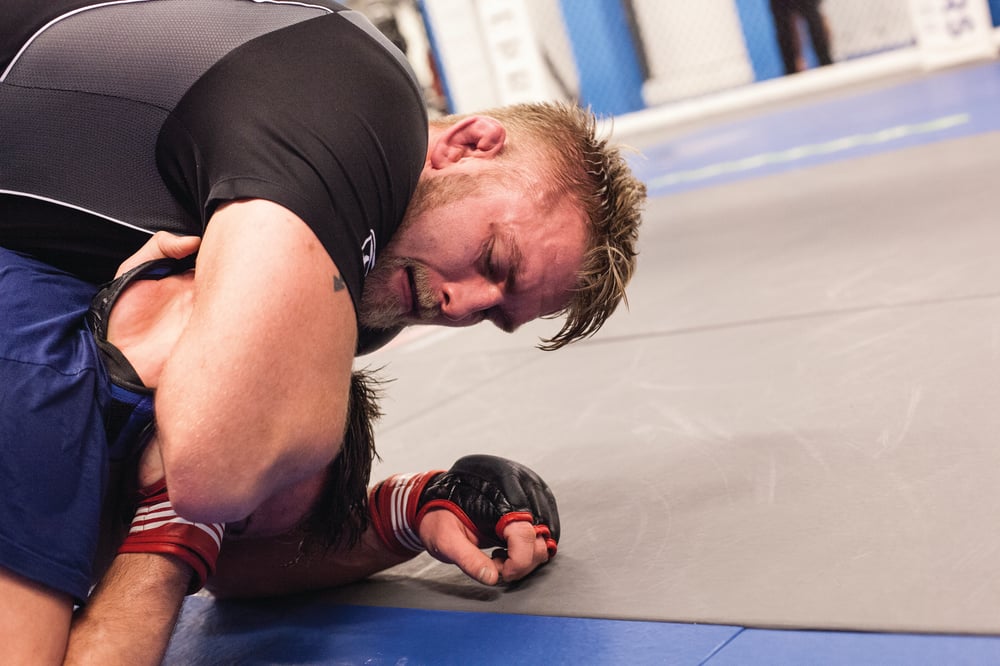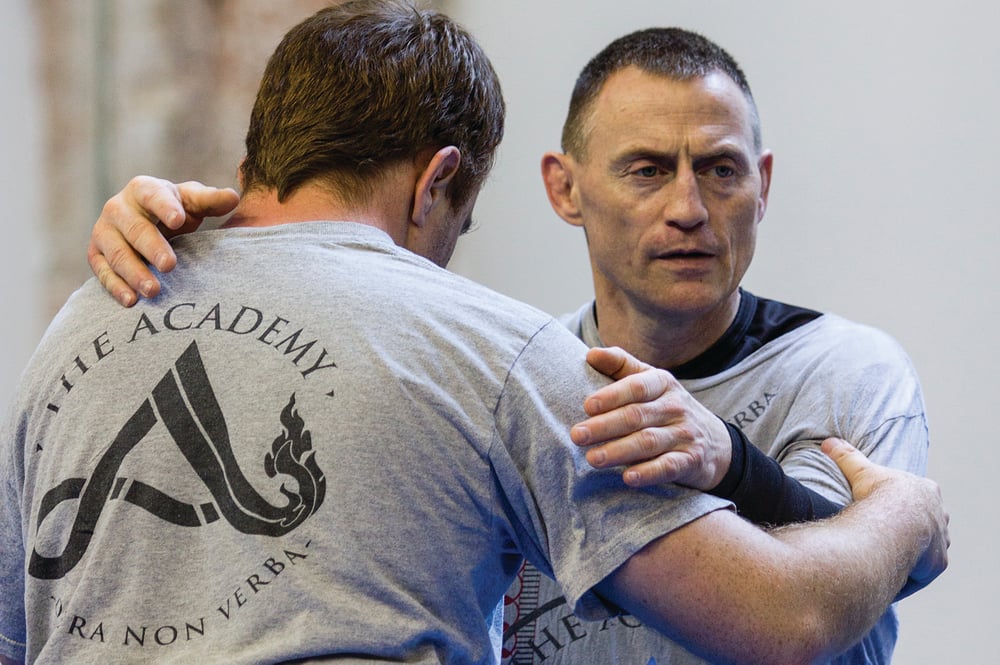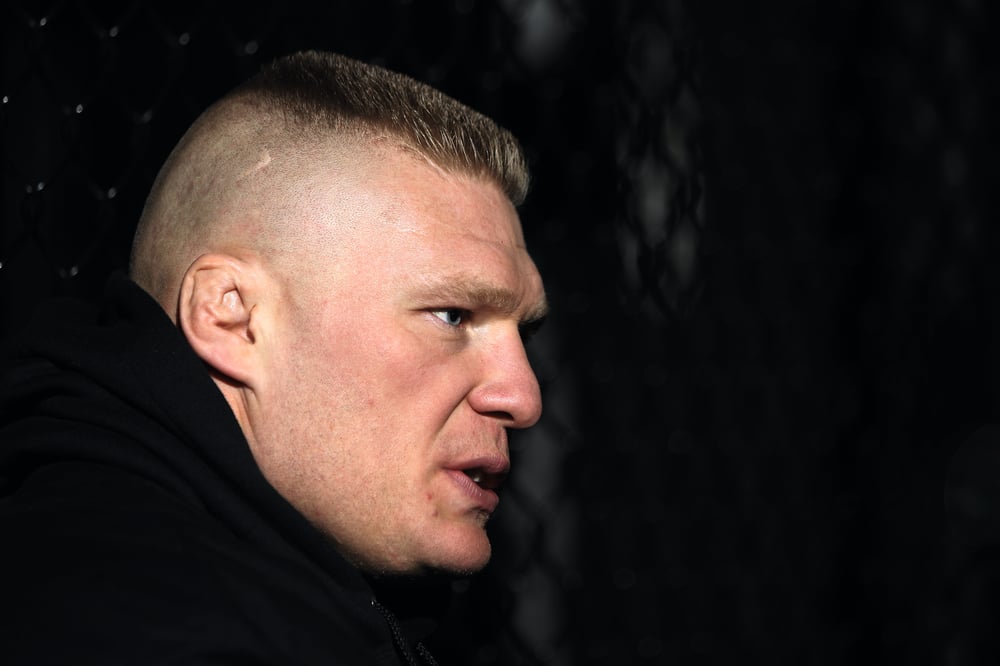
Issue 118
August 2014
Legendary MMA coach Greg Nelson has trained three UFC world title-holders. He reveals the secret to his success – and what it takes to become number one
Very few people make it to the top of the mountain in MMA. In gyms around the world countless fighters sweat and toil, determined to work their way up to a coveted UFC belt, yet one by one they fail. Some bright talents crash and burn after their first defeat, and some come tantalizingly close to realizing their dream before stumbling under the bright lights of a championship decider. But what separates the winners from the wannabes?
Greg Nelson has coached three UFC champions in different weight classes, plus, a host of title-winners in other combat sports. When the young Sean Sherk first walked into his gym, Greg had already led Dave Menne to a UFC middleweight belt and immediately knew he could have another potential champ on his hands.
“He was 18 or 19,” says Nelson. “He had watched the UFC and he was enthralled with it so he showed up for grappling class one day. Our attention was piqued because he was super fast and strong for his size, and he loved it. I saw how hard he trained.From the very get-go he was one of those people who trains full-out. You didn’t have to tell him, ‘Hey, why don’t you get an extra few reps in?’ He would already be doing them. We realized right away, ‘Man, if he keeps going he’s gonna be really good.’”
Heavyweight powerhouse Brock Lesnar was already world-famous as a professional wrestler when he made the pilgrimage to The Academy in Minnesota to meet Nelson, but, like the young Sherk, he also was almost completely unschooled in MMA. “Brock came in and said, ‘Here’s my deal: I know wrestling, but for MMA I’m a blank book. Fill me in.’ He was really open,” recalls Nelson.
Despite their differences in sizes, ages and backgrounds, Nelson has no doubt both future champions were cut from the same cloth.
“Both Brock and Sean truly love to train and push their limits,” he explains. “They never needed a babysitter to tell them what to do. Both of them had the goal of becoming a champion right from the start and they did whatever was needed. They came from wrestling backgrounds, and the goal of every wrestler is to always strive to become the best you can. Especially with Brock; everything he’d ever done he’d taken it to a really high level.”
So how does Nelson turn a one-dimensional wrestling talent into a rounded MMA fighter?
“Wrestling’s about doing the basics over and over and over until you master them,” he explains. “Both Sean and Brock had no problem doing them for round after round. There would be times with Sean when I’d say, ‘Do jab-cross-hook and shoot on the bag,’ then I’d work with another fighter and next thing you know, 45 minutes have gone by and I look over and he’s still doing it. He doesn’t have an issue with doing one combination and not changing it, just mastering it until it’s faster, it’s stronger.”

Nelson believes that it is the grit, determination and work ethic exemplified by athletes like Sherk and Lesnar that ultimately decides championships.
“You cannot get away from being disciplined and working hard,” he enthuses. “Discipline’s not just when you’re in the gym: it’s eating right, getting the right amount of rest when you need it, not drinking alcohol. A lot of times people work so hard and then they go and get drunk, because they’re 20 years old. Then they work super hard to get back to where they were, then they go and get hammered again. They’re never making progress.”
He adds: “With all the guys at the gym who’ve won titles in their individual sports, that stuff doesn’t factor in. They decide to be the best that they can. They weren’t always angels, by any means, and they all had their moments, but then they decided that winning was more important.
“A huge percentage of becoming a champion is mental. The ability to endure all the hardships of life that are going to come at you from different directions, and just getting into the gym day-in and day-out, doing basics day-in and day-out, and pushing yourself to the max day-in and day-out, takes a huge amount of mental discipline. It’s easy to do it for short periods of time, but to do it for years? That takes a lot of mental talent.”
Those hardships include setbacks on the road to glory, like the inevitable injuries – and defeats.
“Injuries will happen,” says Nelson with a shrug. “You have to tell fighters that they can’t do certain things but there are so many other areas they can work. It’s an opportunity to go at a slower pace, to really break down the nitty-gritty of technique and focus on detail. That ends up doing wonders for their game.”
And as strange as it may seem, losing fights is sometimes a necessary step towards ultimate success.
“If a fighter thinks they’re better than they really are then it doesn’t matter what you say to them, they’ll think they don’t have to worry about certain things... until they get beat, and it’s devastating for them, and then they listen and start to improve.”
Nelson is a two-time cancer survivor and understands fighting spirit. He recognizes it in those who are able to learn from setbacks instead of folding under pressure.
“I’ve had a couple of guys – national champion wrestlers – who never even came back,” he recalls. “It was something new for them and they just said, ‘I don’t wanna put myself through that.’ Unbelievable.” To be a winner, he believes, you must be a true warrior. “So many ‘fighters’ I see now are more concerned with the image of being a fighter than with really doing what it takes to be one,” he says.
“I call them ‘Facebook fighters’ because regardless of if they won or lost, trained properly or not, they make sure everyone knows they are a ‘fighter.’ In Sean’s case there was a privacy to it. He knew what he did, and how hard he trained. He didn’t need to tell anyone.”

Greg Nelson’s Top 10 Characteristics Needed to become a Champion
1 Discipline
“All the time, in and out of the gym,” says Greg.
2 Work ethic
“You should be 100% self-motivated and not need your hand held.”
3 Physical explosiveness
“You’ve got to have it at a certain level.”
4 Passion
“If you don’t have a deep love for the process of training to become the best you can, it will eventually give way to something else.”
5 Endurance
“Developed by pushing through pain, but knowing the difference between fatigue and injury.”
6 Self-confidence
“Believe in yourself because you know you’ve done what’s needed.”
7 A will to win
“You’re not there ‘just to get a bunch of fights,’ you’re focused on winning, winning, winning.”
8 Constant student
“Keep learning. Champions do, because even if what they’re doing always looks the same – it’s not. They continue to make improvements which is why they continue to win.”
9 Adaptability
“Analyze your opponent objectively to find weak areas, then do what you need to do – change your trainer, training partners if necessary – to build up the skills to be able to exploit them.”
10 Star quality
“Now more than ever, people have to want to see you fight. Brock was good at the act, and he’d reached a level of fame where he could say what he wanted and not care; but Sean just liked fighting, not the limelight, and had to work at building a social network of fans.”
...










